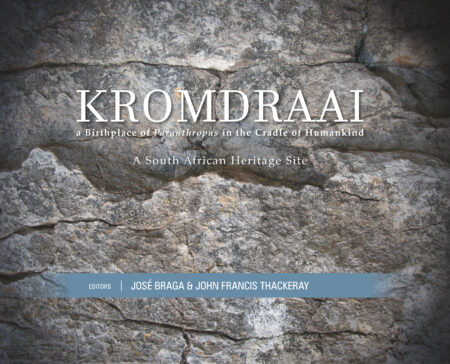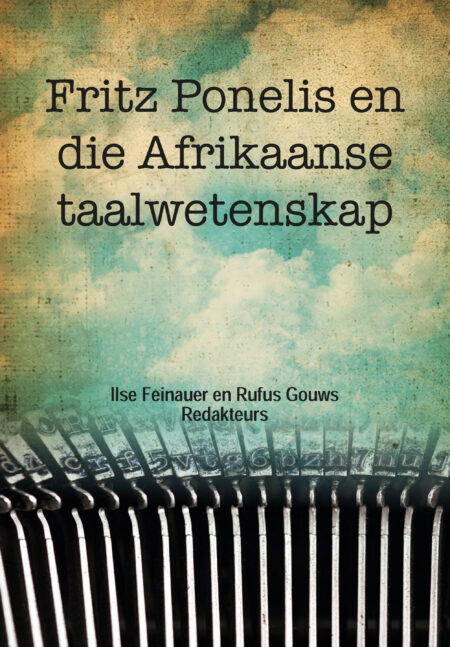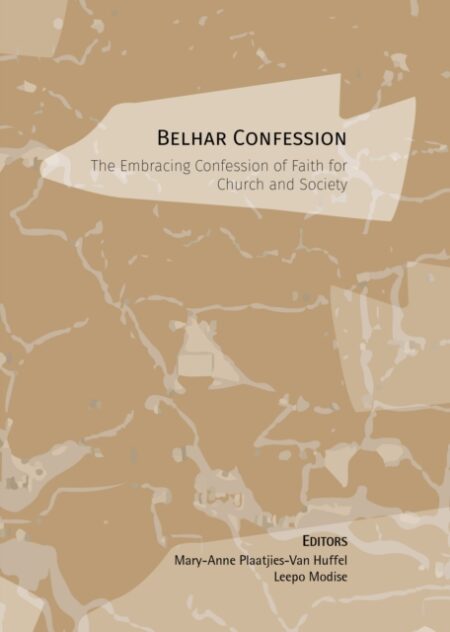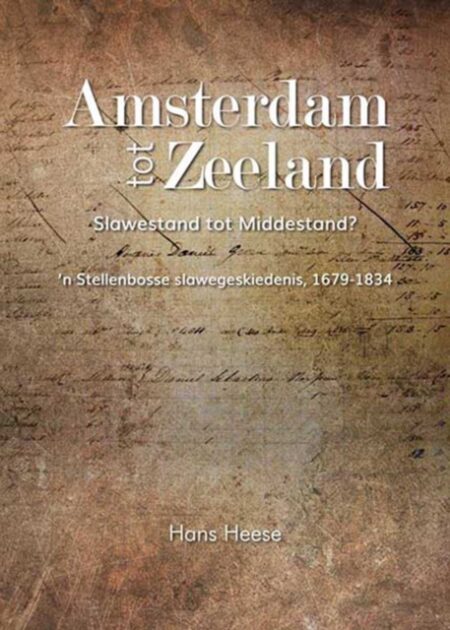-
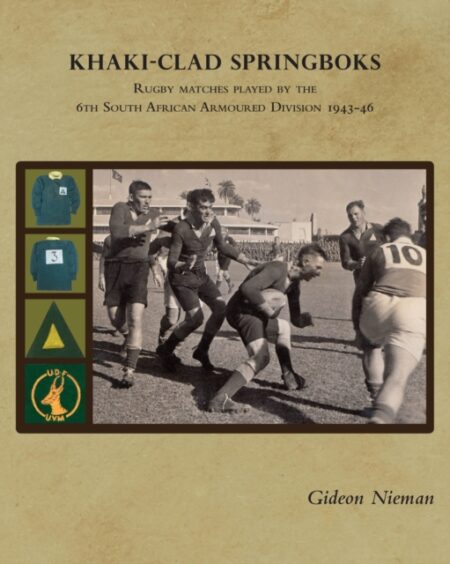
Khaki-clad Springboks
0R395,00Rugby was played constantly during World War II by service teams. Whenever soldiers met or gathered, sport and games developed. Rugby in the armed forces was often an exuberant reaction from the stern reality of war. It was played with knee-pads on the dusty, gritty sand of the desert and on grass beside the Nile river. This is the story of rugby matches played by the 6th South African Armoured Division in Egypt, Italy and their tour of Europe.
eBook: View eBook Version
-

Khaki-clad Springboks
0R0,00Rugby was played constantly during World War II by service teams. Whenever soldiers met or gathered, sport and games developed. Rugby in the armed forces was often an exuberant reaction from the stern reality of war. It was played with knee-pads on the dusty, gritty sand of the desert and on grass beside the Nile river. This is the story of rugby matches played by the 6th South African Armoured Division in Egypt, Italy and their tour of Europe.
Print: View Print Version
-

Knowledge Beyond Colour Lines
0R395,00Knowledge remains timely in education. The need for academics to contemplate its relevance, worth, use and everything in-between deems a continuous intellectual project, rather than a conundrum to be solved. This book takes the South African context by the horns as it challenges the often dormant and traditionalist ways in which higher education spaces see knowledge. Through original research and the voices of academics and students, this book argues for repurposing knowledge generation, knowledge sharing and critical pedagogy so that more inclusive teaching and learning environments can be both imagined and sustained. The contentious tensionalities that this creates for LoLT and SoTL, in particular, are unlocked so as to trouble the South African higher education landscape with the intent to proffer alternative pathways for a knowledge beyond colour lines.
Prof Shan Simmonds (PhD)
NWU
This edited volume bristles with fresh scholarly approaches and insights of an emergent generation of engaged scholars grappling with the issues and problems of higher education in South Africa. The issues dealt with here are varied and encompassing. They are treated with intellectual delicacy and probing sensitivity, articulacy, informed data and bold conclusions. They serve well!
Prof. Kwesi Kwaa Prah, Emeritus Professor of Sociology, University of the Western Cape
Founder of the Centre for Advanced Studies of African Society
eBook: View eBook Version
-

Knowledge Beyond Colour Lines
0R315,00Knowledge remains timely in education. The need for academics to contemplate its relevance, worth, use and everything in-between deems a continuous intellectual project, rather than a conundrum to be solved. This book takes the South African context by the horns as it challenges the often dormant and traditionalist ways in which higher education spaces see knowledge. Through original research and the voices of academics and students, this book argues for repurposing knowledge generation, knowledge sharing and critical pedagogy so that more inclusive teaching and learning environments can be both imagined and sustained. The contentious tensionalities that this creates for LoLT and SoTL, in particular, are unlocked so as to trouble the South African higher education landscape with the intent to proffer alternative pathways for a knowledge beyond colour lines.
Prof Shan Simmonds (PhD)
NWU
This edited volume bristles with fresh scholarly approaches and insights of an emergent generation of engaged scholars grappling with the issues and problems of higher education in South Africa. The issues dealt with here are varied and encompassing. They are treated with intellectual delicacy and probing sensitivity, articulacy, informed data and bold conclusions. They serve well!
Prof. Kwesi Kwaa Prah
Emeritus Professor of Sociology, University of the Western Cape
Founder of the Centre for Advanced Studies of African Society
Print: View Print Version
-

Language and the Law
0R500,00Language and the Law: Global Perspectives in Forensic Linguistics from Africa and beyond is the third volume in a series of books designed to contribute and respond to growing interest in forensic linguistics or language and the law on the African continent. Drawing mostly on contexts where traditional African laws and Western laws are practised side-by-side, and where there are discontinuities between local knowledge systems, belief systems and language practices on the one hand, and official languages of law discourse, conceptualisation and jurisprudence documentation on the other, the chapters in this volume problematise, among other issues, the mediation practices (or lack thereof) of language and legal processes, discourse strategies and complexities in (mis)interpretations in second language court contexts and the miscarriage of justice that these may entail.
eBook: View eBook Version
-

Language and the Law
0R400,00Language and the Law: Global Perspectives in Forensic Linguistics from Africa and beyond is the third volume in a series of books designed to contribute and respond to growing interest in forensic linguistics or language and the law on the African continent. Drawing mostly on contexts where traditional African laws and Western laws are practised side-by-side, and where there are discontinuities between local knowledge systems, belief systems and language practices on the one hand, and official languages of law discourse, conceptualisation and jurisprudence documentation on the other, the chapters in this volume problematise, among other issues, the mediation practices (or lack thereof) of language and legal processes, discourse strategies and complexities in (mis)interpretations in second language court contexts and the miscarriage of justice that these may entail.
Print: View Print Version
-

Language Science and Language technology in Africa
0R445,00This book provides a broad overview of current work on South African languages, language resources and language technologies. While it provides a fairly comprehensive overview, it also ties together the most recent knowledge state here, and is therefore truly innovative ? The book is therefore informed by current international trends in the respective fields of science, and feeds back into them ? There is absolutely no doubt that the book has an academic peer audience and is directed at specialists in the field. – Prof. Axel Fleisch, University of Helsinki, Finland
-
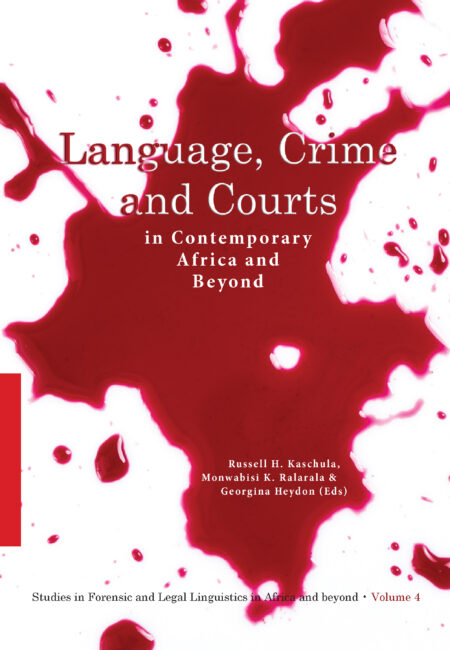
Language, Crime and Courts in Contemporary Africa and Beyond
0R375,00The research represented in this volume, and in the series as a whole, is intended to provide critical analyses and findings that can underpin the development of language policies, practice guides and other resources that support a fair and accessible legal system. However, this will also require well-developed teaching and research programmes, so it is our intention that this volume will continue to support the growth of forensic linguistics in Southern African universities and nurture the next generation of scholars dedicated to forensic and legal linguistics. This aim will be supported by the newly formed African Association of Forensic and Legal Linguists (AAFLL), which will help to coordinate the study of forensic linguistics in Africa. This book series, Studies in Forensic and Legal Linguistics in Africa and Beyond, Volumes I, II, III and IV, continues to play an important role in bringing African forensic linguistic scholarship to a wider audience, while simultaneously promoting the field amongst academic and legal institutions in Africa.
-
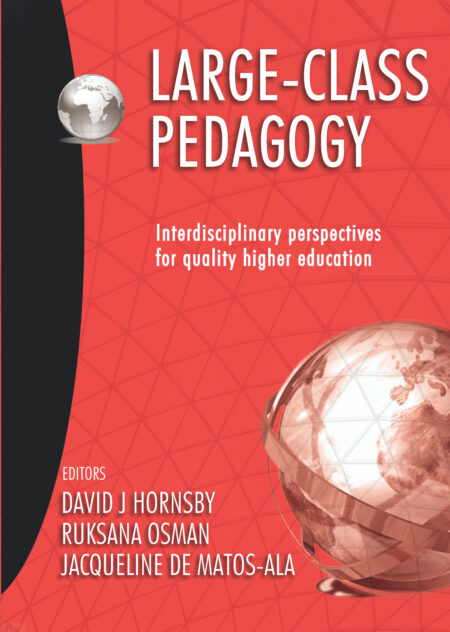
Large-class Pedagogy
0R290,00I highly recommend this edited collection. It is a timely intervention when universities around the world are facing changes akin to the newspaper industry a decade ago. The authors remind us of the potential power of the lecture and that there does not need to be a trade off between the size of the class and the quality of the delivery… Professor James Arvanitakis 2012 recipient of the Prime Minister’s Teaching and Learning Award, University of Western Sydney, Australia This is the first book of its kind that considers the complex issues of large classes. As such, it makes a very important contribution and provides a deep insight into large class pedagogy from a conceptual and practical perspective. Dr Mandia Menits Massey University, New Zealand If the thought of teaching large classes fills you with dread; if you think that pedagogic innovation is impossible in the face of burgeoning student numbers; or if you simply wish to understand more about the dynamics of this increasingly common environment in Higher Education, then this is the book for you. Written by highly experienced academics, it is a valuable (and long overdue!) resource for supporting good practice in the large class context. Dr Jenny Hadingham University of Rochester, New York
eBook: View eBook Version
-

Large-class Pedagogy
0R0,00I highly recommend this edited collection. It is a timely intervention when universities around the world are facing changes akin to the newspaper industry a decade ago. The authors remind us of the potential power of the lecture and that there does not need to be a trade off between the size of the class and the quality of the delivery… Professor James Arvanitakis 2012 recipient of the Prime Minister’s Teaching and Learning Award, University of Western Sydney, Australia This is the first book of its kind that considers the complex issues of large classes. As such, it makes a very important contribution and provides a deep insight into large class pedagogy from a conceptual and practical perspective. Dr Mandia Menits Massey University, New Zealand If the thought of teaching large classes fills you with dread; if you think that pedagogic innovation is impossible in the face of burgeoning student numbers; or if you simply wish to understand more about the dynamics of this increasingly common environment in Higher Education, then this is the book for you. Written by highly experienced academics, it is a valuable (and long overdue!) resource for supporting good practice in the large class context. Dr Jenny Hadingham University of Rochester, New York
Print: View Print Version

